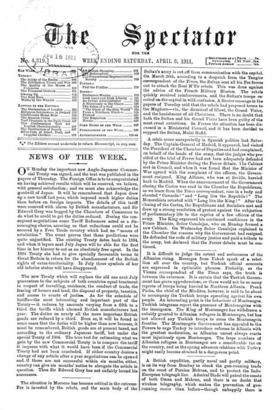The new Treaty which will replace the old one next
July guarantees to the subjects of both countries equal treatment in respect of travelling, residence, the conduct of trade, the leasing of houses and land, the disposal of property, taxation, and access to courts of justice. As for the schedule of tariffs—the most interesting and important part of the Treaty—it reduces by amounts varying from a fifth to a third the tariffs which alarmed British manufacturers last year. The duties on nearly all the more important British goods are reduced by a third. Even so, it will be found in some cases that the duties will be higher than now because, it must be remembered, British goods are at present taxed, not according to the ordinary Japanese tariff, but under the special Treaty of 1894. The true test for estimating what we gain by the new Commercial Treaty is to compare the tariff it imposes with what it would have been if the Commercial Treaty had not been concluded. If either country desires a change of any article after a year negotiations can be opened and, if these are not successful within six months, either, country can give six months' notice to abrogate the article in question. Thus Sir Edward Grey has not unfairly bound his successors.










































